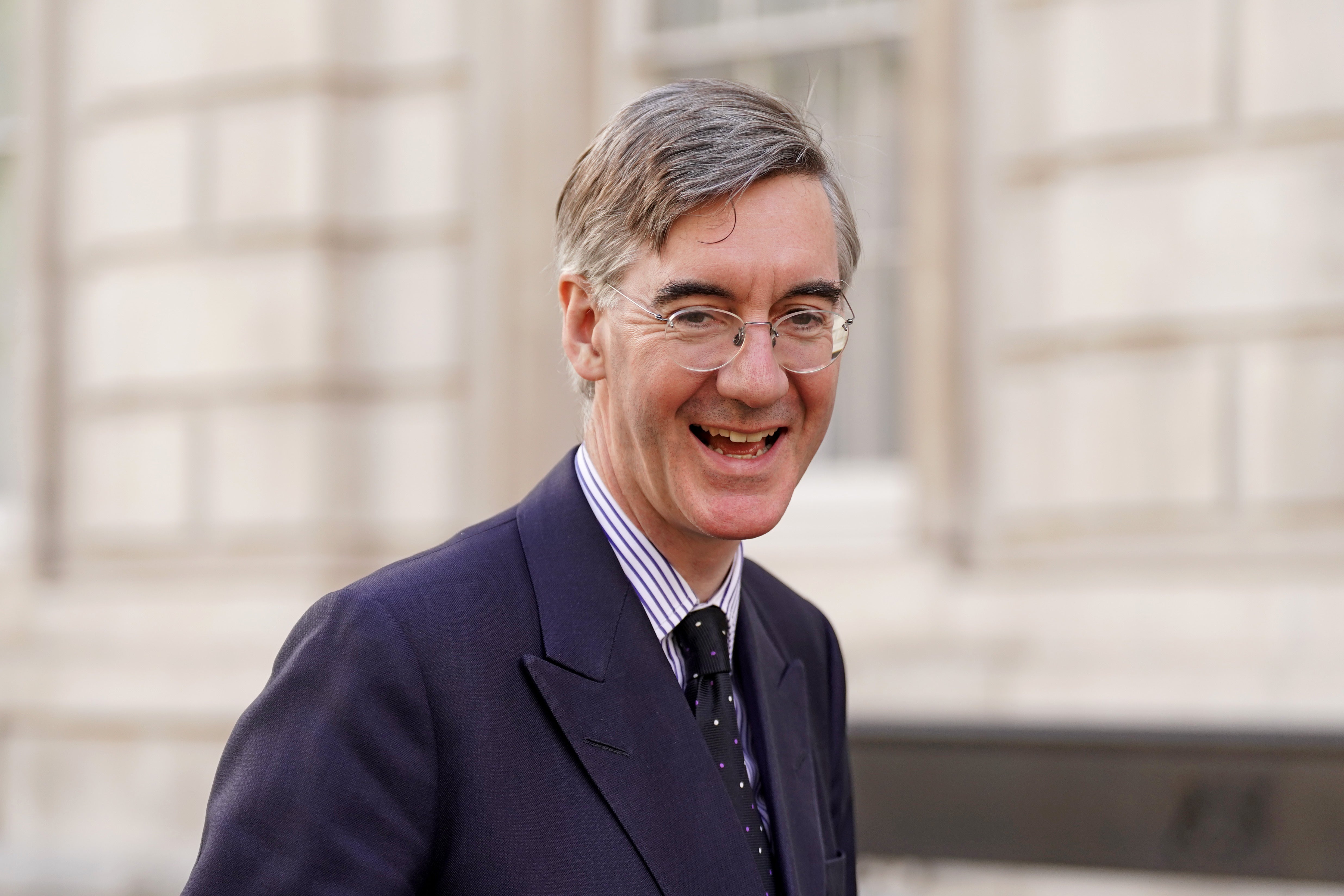Johnson remains unflappable, says Jacob Rees-Mogg
He played down the scale of the crisis within the party, suggesting that ‘losing chancellors is something that happens’.

Your support helps us to tell the story
From reproductive rights to climate change to Big Tech, The Independent is on the ground when the story is developing. Whether it's investigating the financials of Elon Musk's pro-Trump PAC or producing our latest documentary, 'The A Word', which shines a light on the American women fighting for reproductive rights, we know how important it is to parse out the facts from the messaging.
At such a critical moment in US history, we need reporters on the ground. Your donation allows us to keep sending journalists to speak to both sides of the story.
The Independent is trusted by Americans across the entire political spectrum. And unlike many other quality news outlets, we choose not to lock Americans out of our reporting and analysis with paywalls. We believe quality journalism should be available to everyone, paid for by those who can afford it.
Your support makes all the difference.Brexit Opportunities Minister Jacob Rees-Mogg has said that Boris Johnson remains “unflappable”, amid a leadership crisis prompted by the resignation of the Chancellor and the Health Secretary.
Mr Rees-Mogg, who is among the Cabinet ministers still backing the Prime Minister, said he hopes to see Mr Johnson continue as leader of the Conservative Party, despite the loss of Rishi Sunak and Sajid Javid.
Mr Johnson’s mood is “business as usual, he has got a job to do”, Mr Rees-Mogg said.
He played down the scale of the crisis within the party, suggesting that “losing chancellors is something that happens”.
Offering a broad sweep of British political history, with references to the fortunes of former prime ministers Lord Salisbury and Harold Macmillan, he said it was not fatal for a Prime Minister to lose a chancellor.
Speaking after the resignation of the chancellor and the health secretary, Mr Rees-Mogg told Sky News that to suggest such actions should lead to the resignation of the Prime Minister was an “18th-century” view of Cabinet Government.
The Prime Minister is winning votes in the House of Commons and that is fundamental
He said that it is the Prime Minister who appoints Cabinet ministers and is “not someone who is brought down by Cabinet ministers”.
“He relies on being able to command a majority in the House of Commons. That is different,” he said.
“The Prime Minister is winning votes in the House of Commons and that is fundamental,” he said.
On Mr Sunak’s resignation, he appeared to suggest it was unrelated to the recent controversy: “I think a Government works best when it has a Chancellor and a Prime Minister who work hand in glove.”
He said that had been appearing to be “fraying at the edges”.
He said that Commons support was the difference between the situation facing Mr Johnson and that which led to the downfall of Theresa May, his predecessor.
“Theresa May didn’t. That is the difference between the situation now and then.”
He told Sky News: “The Prime Minister won a large mandate in a general election, a vote of the British people and that should not be taken away from him because a number of people resign.”
Mr Rees-Mogg also said that the Prime Minister had made a “minor mistake” over the Pincher controversy.
Chris Pincher quit as deputy chief whip last week following claims that he groped two men at the upmarket Carlton Club, but Mr Johnson knew about allegations against him as far back as 2019.
The Prime Minister acknowledged he should have sacked Mr Pincher when he was found to have behaved inappropriately when he was a Foreign Office minister in 2019.
“If the Prime Minister is hearing endless things about all sorts of public business, he cannot possibly be expected to remember every last detail,” the Brexit Opportunities Minister told Sky News.
“Doesn’t that show you a big man who is willing to apologise when he makes a mistake? I’m not pretending the Prime Minister didn’t make a mistake. It’s obvious. The Prime Minister, forgetting one incident, was not swayed by rumour.”
Mr Rees-Mogg also criticised any suggestion that the backbench Conservative 1922 Committee could change its own rules to re-run a confidence vote.
He said: “The Prime Minister won the vote. The thing about democracy if is you win the vote, you’ve won and that I think is fundamental.”